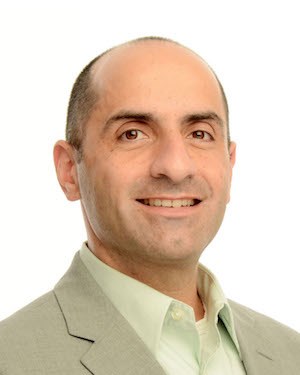As the long-awaited news came Thursday that the Roberta Place COVID-19 outbreak — which claimed the lives of 71 people — had officially been declared over, the head of the organization which helped guide the Barrie long-term home through troubled waters called the ordeal something he would "never forget."
Orillia Soldiers’ Memorial Hospital (OSMH) took over operations of the Essa Road facility on Jan. 18 in an attempt to control the outbreak that had began 10 days prior. OSMH officially concluded its role with the Roberta Place outbreak on Tuesday.
OSMH president and chief executive officer Carmine Stumpo said in his more than 20 years of health-care experience, this was a tragic event that will be remembered for a long time.
“This outbreak was unique in its complexity and impact on residents and their families,” Stumpo told MidlandToday. “It is something I will never forget.”
The Simcoe Muskoka District Health Unit had declared an outbreak at the south-end facility on Jan. 8. In just over a month, there were 67 confirmed resident deaths linked to the virus, three more considered probable, and one death of an essential caregiver who was associated with the long-term care home where his wife resided.
When OSMH became involved to help manage the outbreak, there were three leaders working full-time with Roberta Place, and a larger group of individuals from the Orillia hospital who provided their expertise to various aspects of the outbreak as required, while simultaneously fulfilling their duties with OSMH.
Stumpo said the 30-day agreement with Roberta Place went well and the transition back was seamless.
“Throughout our time there, the Roberta Place management team remained in place and were very engaged throughout the outbreak,” he said. “We established clear goals for completion during and after the outbreak, which formed the transition plan created in collaboration with" the Simcoe Muskoka District Health Unit.
The first few days of OSMH's involvement were filled with a great deal of anxiety, Stumpo said, as the teams completed their rapid testing and established how quickly the virus — later found out to be the B.1.1.7 UK variant — was spreading.
“The early days involved addressing the rapidly evolving care needs of the residents who required more acute services, as well as end-of-life care," Stumpo said. "As the outbreak progressed, there was more work related to stabilizing residents (and) securing appropriate staffing levels.
"Toward the end of the outbreak, our focus turned to recovery and restoration of a new normal for the home," he added.
Stumpo said there will “remain a profound feeling of sadness, though, for lives lost and the impact that will have on families, caregivers and staff.”
On Tuesday, Simcoe-Muskoka moved out of the province’s stay-at-home order and into the Red Zone.
As restrictions loosen, Stumpo said his advice to everyone is to respond quickly at any sign of concern and don’t be afraid to overreact.
“Outbreaks, particularly those involving variant strains, move fast and we cannot hesitate in our response for any high-risk population," he said.
"The other piece of advice is to continue to build strong and lasting partnerships with other health-care and community providers,” Stumpo added. “No single institution could have responded alone to the situation that presented at Roberta Place, and it was the work of all the partners that helped work our way through.”



